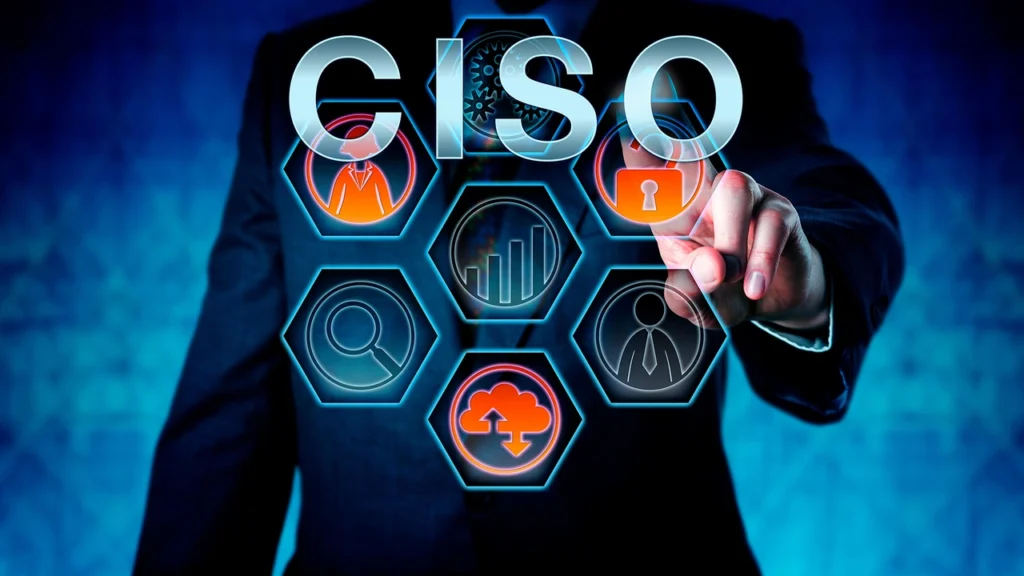In the dynamic and ever-evolving landscape of cybersecurity, the role of a Chief Information Security Officer (CISO) or cybersecurity leader is both pivotal and challenging. Nigerian CISOs face the critical task of navigating a complex mix of technical intricacies, evolving threats, and regulatory demands. However, even the most seasoned cybersecurity professionals can fall victim to common pitfalls that compromise their organization’s security.
A report analyzing data breaches in 2019 revealed that 90% of breaches resulted from human error. This highlights the importance of mitigating cybersecurity mistakes, which remain a primary cause of security vulnerabilities. Sebastine, a seasoned Information Security Engineer specializing in safeguarding digital assets in Nigeria, particularly in Abuja, offers insights into the top mistakes Nigerian CISOs should avoid to ensure optimal cybersecurity defenses.
1. Neglecting Employee Training and Awareness
Pitfall: Failing to properly train employees on cybersecurity best practices. Human error, such as falling for phishing scams or using weak passwords, is a major cause of breaches.
Avoidance Tip: Implement continuous security training programs for all staff members. Conduct regular phishing simulations to gauge employee readiness to handle common threats.
Example: Many Nigerian businesses suffer from phishing attacks due to a lack of employee awareness, making staff an easy target for cybercriminals.
2. Underestimating Insider Threats
Pitfall: Overlooking the risks posed by insider threats. Insiders—whether intentional or accidental—can cause significant damage by exploiting their access to sensitive systems.
Avoidance Tip: Enforce strict access control policies and monitor insider behavior closely. Apply the principle of least privilege, granting employees only the access they need to perform their roles.
Example: A Nigerian company exposed critical customer data after an insider shared sensitive files without sufficient oversight.
3. Relying Solely on Perimeter Security
Pitfall: Focusing too much on perimeter defenses (e.g., firewalls) while neglecting internal security. Modern threats often bypass perimeter defenses through phishing or social engineering.
Avoidance Tip: Implement a Zero Trust model, where every access request is authenticated and verified, regardless of its origin. Ensure you have layered security measures.
Example: A Nigerian financial institution suffered a breach after attackers bypassed their firewall via a phishing attack, highlighting the need for multi-layered security.
4. Ignoring Software Patching and Updates
Pitfall: Neglecting to patch outdated software. Cybercriminals exploit known vulnerabilities to infiltrate systems.
Avoidance Tip: Implement a robust patch management process. Use automation tools to detect and patch vulnerabilities quickly.
Example: A Nigerian business was hit with ransomware when hackers exploited an unpatched operating system.
5. Inadequate Incident Response Plans
Pitfall: Not having a well-defined and regularly tested incident response (IR) plan. Delays during a cyberattack can cause further damage.
Avoidance Tip: Develop and test an incident response plan regularly. Ensure that all employees and third-party vendors understand their roles during an incident.
Example: A Nigerian telecom company faced substantial financial losses after a breach due to a lack of a coordinated response plan.
6. Overlooking Cloud Security
Pitfall: Assuming that cloud providers are solely responsible for securing cloud environments. Cloud security is a shared responsibility between businesses and providers.
Avoidance Tip: Implement strong cloud security measures like encryption, multi-factor authentication, and stringent access controls. Review configurations regularly.
Example: A Nigerian tech startup experienced a breach due to poor configuration of their AWS environment, exposing sensitive customer information.
7. Failing to Conduct Regular Security Audits
Pitfall: Overlooking the importance of regular security audits leaves organizations vulnerable to undetected threats.
Avoidance Tip: Conduct internal and external security audits regularly. Penetration tests should also be performed to identify potential weaknesses before they can be exploited.
Example: A Nigerian e-commerce platform discovered critical vulnerabilities during a security audit, preventing a potential breach.
8. Poor Vendor and Third-Party Risk Management
Pitfall: Neglecting to assess third-party vendor security practices. Vendors can become weak links if they don’t follow stringent security measures.
Avoidance Tip: Establish robust vendor risk management policies. Evaluate and monitor the cybersecurity measures of third-party partners continuously.
Example: A Nigerian bank suffered a data breach through one of its third-party service providers, exposing the need for stringent vendor risk management.
9. Not Keeping Up with Emerging Threats
Pitfall: Failing to stay updated on new and evolving cybersecurity threats. Cybercriminals continuously find new ways to bypass traditional security measures.
Avoidance Tip: Nigerian CISOs should stay updated on trends like Advanced Persistent Threats (APTs) and Zero-Day vulnerabilities. Participating in cybersecurity forums and training programs can help them stay ahead of emerging threats.
Example: A Nigerian corporation fell victim to an advanced malware attack that could have been prevented with up-to-date threat intelligence.
10. Inconsistent Backup and Disaster Recovery Plans
Pitfall: Poorly executed or inconsistent data backup strategies can result in severe data loss during an attack.
Avoidance Tip: Regularly back up critical data and test your recovery processes. Ensure backups are stored in secure, isolated environments to avoid compromise during an attack.
Example: A Nigerian SME had to pay a hefty ransom when ransomware encrypted their files, as they had no secure backup to restore their operations.
Conclusion
Nigerian CISOs have the monumental responsibility of protecting their organizations from the growing threat of cyberattacks. By avoiding common mistakes like neglecting employee training, underestimating insider threats, and relying solely on perimeter defenses, CISOs can create more robust security frameworks. Regular security audits, effective incident response plans, and up-to-date cybersecurity knowledge are essential to ensuring that Nigerian businesses remain resilient in an increasingly digital world.

